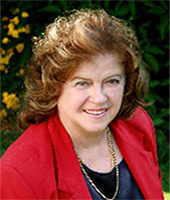
Multidisciplinary Teams – by Dr Judith O’Malley-Ford
So now you are qualified as an intern, a GP, or as a specialist in a certain field of specialised medicine.
Are you a member of a multidisciplinary team? This is a rhetorical question, because whether you know it or not at this time, you will always be a member of a multidisciplinary team. If you think you are NOT a member of a multidisciplinary team, then you need to relook at your role and the medical service you are providing.
There are many different types of multidisciplinary teams. Think of how you practice medicine in your present role, and into your proposed future role. It will become clear to you that you are part of a group of health practitioners who together provide services to patients of all descriptions, all age groups, and across a range of medical diagnoses.
It will be part of your job to identify who those other members are in your multidisciplinary team. These teams will change depending on your role description. But, it is worth developing a wide range of contacts, in other fields of health practice. They in turn will be very happy to identify you as a member of their perceived team.
There are a number of benefits in having a team approach to a medical problem. It develops camaraderie with other like-minded health professionals. It helps when you have a difficult clinical problem and you are not sure what to do next. You could refer the patient to a member of your team, or alternatively you could call one of your other team members for advice. The other member of your team might say,
‘Send them right over to me. It sounds like a XYZ problem”, or they might say,
“No, your patient might benefit from some other form of treatment entirely,” and give you the name of another helpful person. Either way the patient is happy that you have gone to the trouble of making inquiries on their behalf.
There is nothing wrong with saying to a patient, “I don’t know.” The thing about saying I don’t know, is that it should always be followed by saying, “I’ll find out some more information for you.”
Other members of a team apart from any number of medical specialists may include, physiotherapy, occupational therapy, speech therapy, nurse, optometrist, pharmacist, podiatrist, audiologist, psychologist, school counselor, and reception staff. Not to forget that parents, and extended family members are also part of the team.
For example, the mother and child present to you as a GP, because the child is falling behind at school. The teacher asks the question about his / her hearing. You as the GP
make a referral to the audiologist, who reports that the hearing is decreased, but the child also has delayed speech. You refer the child to an ENT specialist who performs a grommet operation. You then refer the child to Speech Therapy, and to the remedial learning teacher. By the end of the year, the child’s condition has improved, and the grommets have fallen out, and he / she can now resume swimming.
Everyone involved learns something from that scenario.
If you are not sure about e.g. an x-ray, ring the radiologist, and ask for an opinion while the patient is present. Call him or her by name. Patients are reassured that you know your way around the medical, and allied health system, especially if the person you are ringing recognises who you are too. It’s a win win situation.
Having identified that you are now a member of a multidisciplinary team, the next task is to go out there and make some contacts. Good Luck, and don’t forget who told you this.
Dr Judith O’Malley-Ford is a general practitioner on Brisbane’s north side. She is the author of the Australian Medical Dictionary, and has a website www.dr-judith.com.
More articles on My Health Career:
